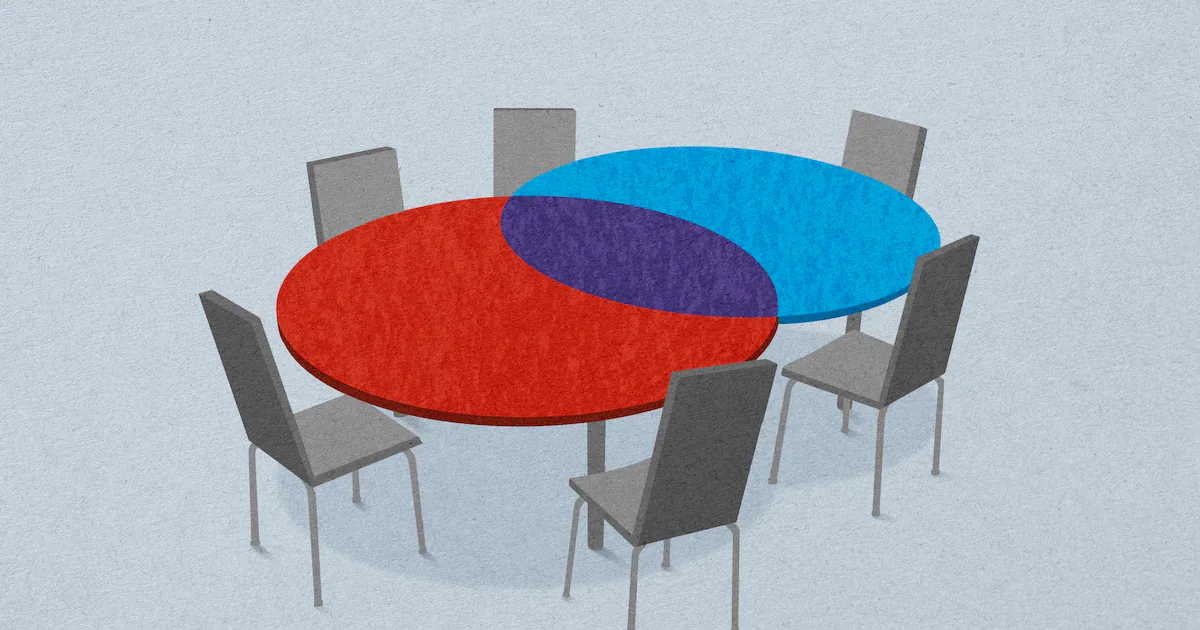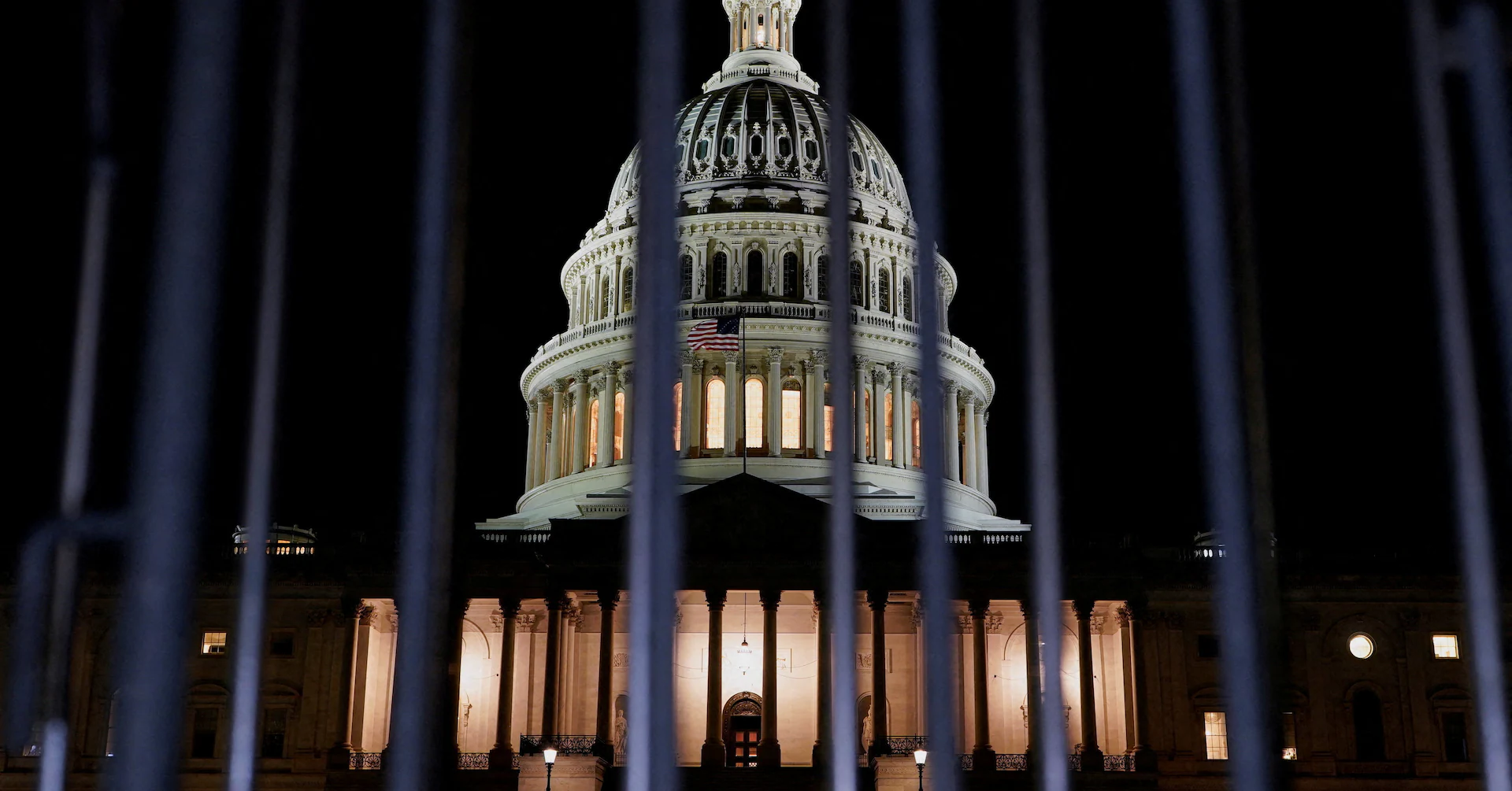
A version of this article was first published in the Right to the Point newsletter. Sign up to receive the newsletter in your inbox every Wednesday morning.
Moderates and centrists have gotten a bad name over the past few decades, and that’s part of the checkered legacy of Rush Limbaugh.
The late, great radio host — who helped to shape conservatism for three decades and beyond (he famously inspired Charlie Kirk) —disdained political moderates. He saw moderates and centrists as people who lack the will to stand by principles. “There is no book in the library entitled ”Great Moderates in American History,” Limbaugh was fond of saying.
In 2011, he argued against moderates in a radio monologue after Peter Berkowitz, a senior fellow at the Hoover Institution, published a piece promoting compromise in The Wall Street Journal.
In his op-ed, Berkowitz acknowledged that compromise can be “the path of least resistance, the province of the mealy-mouthed, weak-kneed, and lily-livered.”
“Yet when circumstances warrant — and they often will —compromise will be the considered choice of the steely-eyed and stouthearted,“ Berkowitz wrote.
We hear the echoes of Limbaugh still in people who insist that “the other side” is so morally and ideologically bankrupt that there’s no reason to reach across the aisle. But those views are by no means universal.
New polling by Gallup shows that most Americans would rather see the political leaders they elected compromise in order to get things done in Washington rather than “stick to their political beliefs at the risk of accomplishing little.”
That seems significant on a week in which a government shutdown dominates the headlines.
Perhaps not surprisingly, independents and Democrats were the most likely to express this view. A generation of conservatives schooled by Limbaugh still see compromise as anathema and they’re even more unwilling to seek compromise while enjoying the fruit of the cultural shifts that came with Trump’s re-election.
Thirty-eight percent of Republicans in the Gallup poll said it’s important for political leaders to compromise — the exact same percentage of Republicans who said it’s more important for politicians to stick to their beliefs.
We hear Limbaugh again: “Winners do not compromise. … The winners who do compromise are winners who still don’t believe in themselves as winners, who still think of themselves as losers.”
You can agree with Limbaugh on a lot and still believe he was wrong on this point. It is often possible to reach a compromise without sacrificing core values or beliefs — it’s just that doing so is much harder than ramming through your own agenda. “My way or the highway” isn’t conducive to either marriage or democracy.
In this political landscape, the independents are increasingly important to watch, since the number of Americans who identify as independents is on the rise, even though most independents still lean right or left. And 47% of independents say it’s more important to compromise than stick to your beliefs in order to get things done. (For Democrats, the number is 58%.)
Who are the ‘Upbeat Outsiders’?
A new poll from CNN also confirms the growing importance of independents on the political landscape, with some interesting subsets worth noting — and perhaps, for the political parties, worth courting.
CNN sorted independents into five groups: Democratic Lookalikes, Republican Lookalikes, the Checked Out, the Disappointed Middle and the Upbeat Outsiders.
Those are pretty self explanatory — the Disappointed Middle, for example, seems largely synonymous with a group often described as the “Exhausted Majority” — people who are weary of unending conflict.
Those “Upbeat Outsiders,” however, offer reason for hope. They almost certainly reflect the share of Americans who believe that compromise in service to a larger goal is laudable. And most are under the age of 50.
The Upbeat Outsiders, per CNN, say life in America is pretty great and our best days lie ahead. Only 12% want to completely overhaul the political system. Most are not independents because they have a grievance with one or the other political party, but because they like some policies of the left and some of the right. Nearly two-thirds see themselves as neither leaning left nor right, but of those who tilt in one direction, more tilt Republican (23%) than Democrat (15%).
While both Limbaugh and Kirk are often described as “happy warriors,” the Upbeat Outsiders exhibit the happy part without the warrior part, possibly because they’re not really engaged with politics. They are not the “Checked Out” — people who are disengaged because of disillusionment — but they’re likely not engaged because they’re too busy living their lives. (Forty-two percent have at least one child under the age of 18.)
For the political parties, these Upbeat Outsiders, who comprise nearly a quarter of independents according to CNN’s calculations, would be a great addition to their ranks. But recruiting them, it seems, might require compromise, and the toning down of the “existential threat” language so prevalent in politics today.
Who said it worst?
This week, I was dismayed to come across a press release from the California governor’s office that used an expletive in the subject line — at least an implied expletive, the sort that uses a hyphen instead of a vowel, but we still know exactly what was meant, and so the reader is compelled to have the profanity in their head.
The headline said: “Trump to Americans: ‘Go (Expletive) Yourself’; shuts down Republican-controlled government, increasing monthly health care costs by hundreds of dollars.”
At first, I thought I’d accidentally gotten on a Gavin Newsom campaign mailing list, but the email came from an official California government address, which is kind of shocking on multiple levels — first, that the content was so political; second, that it used both the implied expletive and the actual expletive later in the email, where the word was in all caps and highlighted in yellow.
Did Trump actually say this? Well, no. The email linked to a Politico article in which an anonymous “White House official” told the reporter that Trump said that about Democratic leaders, not Americans.
That official may well have used the expletive in question; it’s unclear whether Trump himself did. But the governor’s press office took the quote and ran with it in an even more disturbing way — using government resources, to boot.
On a week in which university officials were again having to apologize for profane chants at a football game, it’s clear that there’s a straight line from grown-ups behaving badly to kids behaving badly that few in our culture want to acknowledge — and correct.
And yes, if you’re a college student behaving like that at a football game, you’re still a kid in my book.
Recommended reading
Naomi Schafer Riley says she understood how, in the immediate aftermath of Charlie Kirk’s assassination, some people didn’t know who he was. What was perplexing to her were the people who were completely bewildered by the religious expression at his memorial service.
She writes: “There is something to be said for what educated people used to call the ‘Grand Tour’ — only I think it should be done in America instead of (or in addition to) the capitals of Europe. It wouldn’t take much to visit some churches. And since some say we are at the beginning of a religious revival in America, it seems more relevant than ever.”
Read the full piece here:
What the reaction to the Charlie Kirk memorial service showed me
“The Burghers of Calais” is a famous bronze sculpture by Auguste Rodin that depicts six French men who surrendered in order that their town be saved. Valerie Hudson likens the sacrifice to what is needed to end the Israel-Hamas war.
“There is no nation on Earth, with the possible exception of Iran (and even Iran now seems diffident), that wants to see Hamas continue to have any power or influence in Gaza. If Hamas leaders were honorable men, they would follow the example of the burghers of Calais. It is time to surrender unconditionally for the sake of the people of Gaza.”
Hamas has virtually no defenders now. It’s time for an unconditional surrender
It was a difficult week for my Latter-day Saint friends and colleagues. Aaron Shill writes movingly about the weekend in which The Church of Jesus Christ of Latter-day Saints lost its beloved president, Russell M. Nelson, and also suffered a horrific attack on a meetinghouse in Michigan.
“There’s a phrase in the Book of Mormon that keeps coming into my mind. It’s spoken by Alma to an anti-Christ named Korihor: ‘Why do ye teach this people that there shall be no Christ, to interrupt their rejoicings?’ Worship services, whatever the setting or congregation, should be about joy. But on Sept. 28, ‘rejoicings’ weren’t just interrupted. They were shattered — and a community of brothers and sisters will never be the same.”
Remembering our prophet while mourning our lost
End notes
Last week, I took a deep dive into how “the abortion pill” — really, two drugs used together to terminate a pregnancy — is driving the next front in this longstanding cultural battle.
Texas is at the heart of this, just as Texas was at the heart of Roe v. Wade. But now, abortion is becoming a kind of civil war between blue states and red states, one legal scholar told me. Groups in Massachusetts are sending tens of thousands of abortion drugs to Texas and other states with restrictive abortion laws. If you missed it, you can read more here:
The abortion debate is no longer about Roe v. Wade. It’s about red states v. blue states



